
美國最高法院(Supreme Court)推翻了“羅伊訴韋德案”(Roe v. Wade)的裁決,這激發(fā)了許多生育權(quán)的支持者公開分享她們的墮胎故事——通常是第一次——以努力消除公眾對墮胎經(jīng)歷的偏見。這次,一向比公眾更保守的企業(yè)卻遲遲沒有參與進來。
但高管也是人——有四分之一的美國女性在45歲之前墮過胎,一些高管就在其中。雖然每個人都有權(quán)將自己的墮胎故事保密,但選擇分享墮胎故事可能會帶來深遠影響。
《財富》雜志邀請各行各業(yè)和公司的商界領(lǐng)袖——從初創(chuàng)公司到處于巔峰的美國企業(yè)——分享她們的墮胎故事。14位商界領(lǐng)袖同意這樣做,以下故事是她們自己講述的。她們分享了幾十年前在開始職業(yè)生涯之前意外懷孕的故事,以及在發(fā)現(xiàn)孩子無法存活而被迫終止妊娠后強烈希望自己能夠保住孩子的故事。
在美國,企業(yè)在決定員工未來獲得生殖保健服務方面發(fā)揮著至關(guān)重要的作用。在禁止墮胎的州,雇主為員工提供墮胎手術(shù)和交通費用。在未來的幾個月和幾年里,公司將決定在哪里雇傭員工,以及把它們的州稅上繳給哪里。企業(yè)將被迫更仔細地審查它們?nèi)绾慰梢园l(fā)揮游說能力,以及哪些議員接受了它們的競選捐款。
然而,公開分享個人墮胎故事仍然是一種恥辱,尤其是作為商界領(lǐng)袖。值得注意的是,許多同意講述自己墮胎故事的人都是為自己工作的創(chuàng)始人和首席執(zhí)行官,而不是大型公司的高管。
正如這些故事所表明的那樣,首席執(zhí)行官和領(lǐng)導者在員工墮胎問題上的決策并不是在實施影響理論上的個體的抽象政策。這些決策會影響他們的員工,以及他們尊重并每天與之共事的領(lǐng)導。

安妮·波諾,企鵝蘭登書屋(Penguin Random House)增長營銷副總裁
2002年2月,我還在讀大三,當時快21歲了。我和某人約會,結(jié)果發(fā)現(xiàn)自己懷孕了。我的人生才剛剛開始。我有自己的計劃、希望和夢想,但從沒有考慮過讓自己在20歲時為人父母。
我和我的伴侶進行了一次理智而冷靜的討論,然后我去了康涅狄格州紐黑文的計劃生育中心(Planned Parenthood)。診所外面有抗議者,那場景很嚇人。但一進到診所,我就覺得自己得到了支持。我很容易就能夠獲得護理。
墮胎往往充滿了外在的恥辱和創(chuàng)傷。但我很榮幸,我的經(jīng)歷是積極的——我一點都不覺得羞恥。這很正常,我只是這樣做了。這是醫(yī)療保健。我今天有兩個孩子;一個是女孩,她將來不能按照自己意愿墮胎了。我們住在北卡羅來納州,如果她在20歲時懷孕,她就將面臨艱難的決定、恥辱和我從未面對過的困難。

麥迪遜·巴特勒,Grav公司首席人事官
我的墮胎經(jīng)歷救了我的命。在我20歲出頭的時候,我和一個有暴力傾向的人開始了一段感情。2014年,我發(fā)現(xiàn)自己懷孕了,當時我23歲,我們住在羅德島。我想終止妊娠,他也這么想。
我做了藥物流產(chǎn);我自己服藥——那是最痛苦的部分。我非常痛苦。當我在2015年再次懷孕時,我去了一家生殖健康診所,這樣我就不會再獨自承受那種痛苦了。在這段關(guān)系中,我在經(jīng)濟上受到了虐待;如果我無法在家附近墮胎,我就不可能離開這個州去接受我需要的護理。
我想,如果我沒有做過這兩次墮胎手術(shù),我的余生就將和一個虐待我的人綁在一起。更不用說在一個充滿暴力的家庭撫養(yǎng)一個孩子意味著什么。我從未感到一絲遺憾——我唯一感到的是,我知道自己保留了一些自由。和他生了孩子就意味著我再也不能重獲自由了。
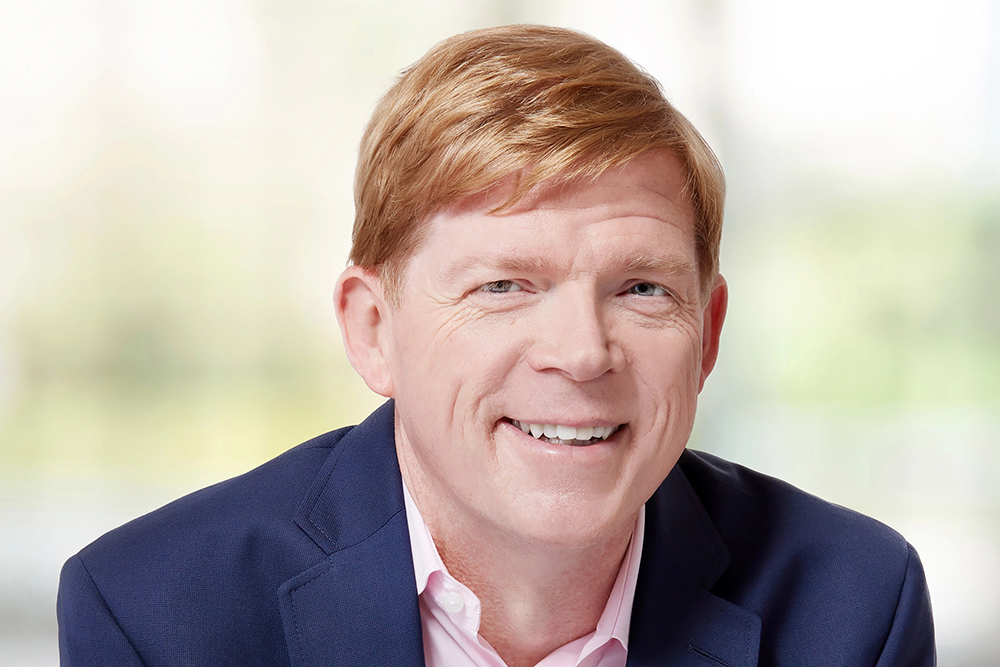
布蘭登·卡森,《財富》500強里一家公司的副總裁
我出生于1965年,我媽媽在1963年生下了我的姐姐,當時她16歲。20世紀70年代,在新墨西哥州,身為單身母親,我媽媽撫養(yǎng)我們姐弟長大。當她在2009年去世時,我們讀了她的日記,發(fā)現(xiàn)她曾經(jīng)在20世紀60年代初懷過一次孕,并做過流產(chǎn),當時她只有十四五歲。我們沒有了解很多細節(jié),但這是在墮胎合法之前,而且他們沒有經(jīng)濟能力,所以我們認為她不會開車去一個更大的城市進行墮胎手術(shù)。
對她來說,16歲就成為母親,不斷換工作來養(yǎng)活我們已經(jīng)很艱難了——如果她在14歲時被迫成為母親,我就只能想象那會有多艱難。我們在一個保守的社區(qū)長大,但我媽媽總是對某些社會問題充滿熱情。這就是我媽媽教我的:這不是一個真正的政治決定。這是一項人權(quán)。

凱特·科爾,Athletic Greens總裁兼首席運營官
我有兩個漂亮的孩子,但我在懷這兩個寶寶之前和中間有過幾次流產(chǎn)。其中一次流產(chǎn)不是很順利。2018年年底,我去看了婦產(chǎn)科醫(yī)師,他們證實我流產(chǎn)了。我需要進行刮宮手術(shù),以確保沒有殘存物,這樣我就不會出現(xiàn)可能威脅健康或再次懷孕的并發(fā)癥。刮宮手術(shù)與手術(shù)流產(chǎn)非常相似。
我當時在亞特蘭大,擔任Focus Brands的總裁兼首席運營官,在那里,為期六周的墮胎禁令可能很快就會生效。現(xiàn)在我想,有多少醫(yī)療服務提供者會對進行墮胎手術(shù)感到緊張,或者擔心失去執(zhí)照和執(zhí)業(yè)能力,甚至坐牢。醫(yī)療服務提供者可能會說:“看,你需要進行手術(shù)。但我們這里不能再做手術(shù)了。”
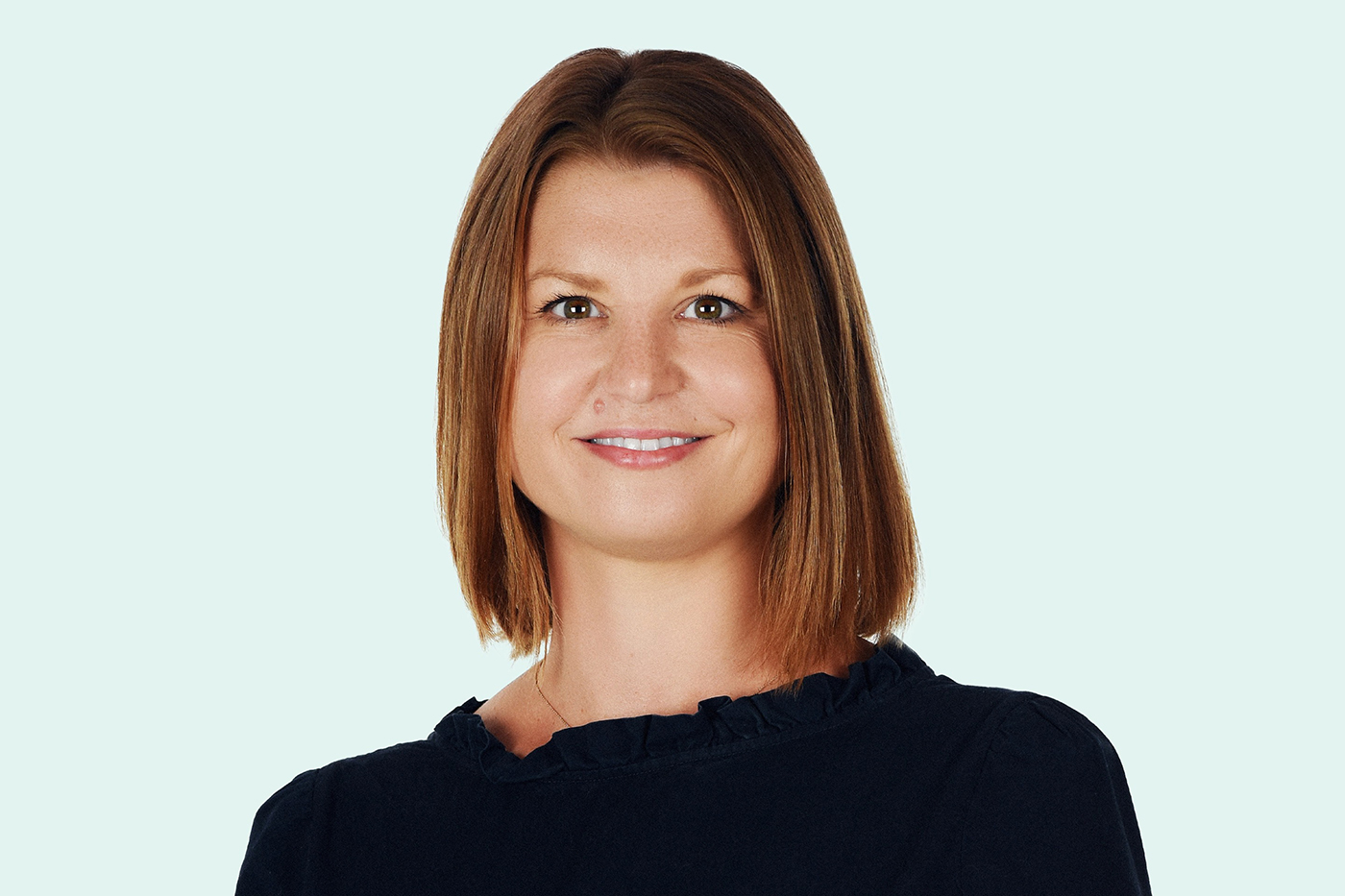
凱西·加斯佩林,Amalgamated Bank社會影響銀行業(yè)務第一副總裁
我和現(xiàn)在的丈夫在一起已經(jīng)19年了——從我20歲開始。我們等了15年才組建了家庭,這樣我們才能在職業(yè)和經(jīng)濟上取得成功。2018年,我生下了我們的兒子。2020年,我自然流產(chǎn)了——當時我并不知道自己懷孕了。然后在2021年,我在計劃懷孕期間流產(chǎn)了兩次,都需要醫(yī)療支持。第二次是在12月。在美國最高法院聽取“多布斯訴杰克遜婦女健康組織案”(Dobbs v. Jackson Women's Health Organization)的口頭辯論,并表明其在墮胎權(quán)問題上的傾向的前一天,我發(fā)現(xiàn)懷孕是不可行的。
馬薩諸塞州的醫(yī)生讓我選擇使用藥物流產(chǎn)、進行外科手術(shù)或順其自然。在我第一次流產(chǎn)后,我知道第三種選擇會是什么樣子;我希望在安全可控的環(huán)境中(在我家中)進行藥物流產(chǎn)。這一選擇給了我隱私和尊嚴。這一選擇承認了我的人性——懷著孩子的婦女的人性。我無法想象如果不能控制這個決定會有多痛苦。

維多利亞·塞恩·吉奧亞,Perelel聯(lián)合創(chuàng)始人及聯(lián)合首席執(zhí)行官
29歲時,我剛剛結(jié)婚。我和丈夫都想要一個大家庭。2016年,我第一次懷孕,當時我們住在洛杉磯,我流產(chǎn)了。孩子在九周時失去了心跳。我嘗試過藥物流產(chǎn),但沒有成功。我必須盡快進行刮宮手術(shù)。由于潛在的疤痕組織,我有感染甚至死亡的風險,以及威脅未來生育能力的風險。我拼命想要一個孩子,所以這對我來說很可怕。手術(shù)在24小時內(nèi)完成對我的健康至關(guān)重要。
嚴格來說,這不是我的選擇。但能夠進行嚴格意義上的墮胎手術(shù)——快速而安全地進行墮胎手術(shù)——讓我今天有了三個健康的孩子。

琳達·金,Moon Mental Health創(chuàng)始人及首席執(zhí)行官
2001年,21歲的我剛從大學畢業(yè),準備進入醫(yī)學院。我是一個陷入戀愛的年輕人,我的人生還有很長的路要走,我根本沒有做好為人父母的準備。我去了波士頓的計劃生育中心。這是艱難的。這本身已經(jīng)是一個令人心碎和痛苦的決定。然后你去診所,就會看到抗議者們大喊大叫,試圖嚇跑你。
六年后,我在2007年生下了三個女兒中的第一個,當時我在麻省總醫(yī)院(Mass General)做精神病住院醫(yī)師。那是懷孕最糟糕的時候——我在懷孕38周和39周的時候上了兩周夜班。但這對我來說是正確的選擇。人們有時會談論導致女性終止妊娠的“種種不便”。這不是方不方便的問題——每個人都會知道他們何時做好了情緒準備,這對他們來說是正確的選擇。當一個人準備好了,他們就能夠消除障礙去做最困難的事情。當他們沒有準備好時,懷孕會造成巨大的傷害。

蘇珊·勒納,Michael Stars創(chuàng)始人及首席執(zhí)行官
我在20世紀50年代和60年代長大,那時沒有人談論性、經(jīng)期,甚至母乳喂養(yǎng)或其他任何事情。要服用避孕藥,我需要得到父母的許可。當我離開家去威斯康辛大學(University of Wisconsin)讀書時,我終于在計劃生育中心服了避孕藥。大學輟學后,我環(huán)游世界,最終在印度開始做進口生意。當我往返印度,創(chuàng)辦新公司的時候,我遇到了一個法國男人,和他有過一段短暫的戀情,然后懷孕了。
我是1978年回到洛杉磯的時候發(fā)現(xiàn)的,那時我27歲。當時“羅伊訴韋德案”的判決才過去五年,但我不知道有誰經(jīng)歷過這件事情。沒有人談論這件事情。但我知道我可以合法墮胎。我很幸運,我的婦科醫(yī)生愿意為我做墮胎手術(shù)。
如果我未能墮胎,我的麻煩就大了。我不知道我會做什么。我沒有積蓄。我的父母可能會收留我,但當時他們在芝加哥,而且年紀很大了。我一生中所做的一切——1986年我和丈夫創(chuàng)辦了Michael Stars,如今我們雇傭了110名員工——都不會發(fā)生。我很幸運能夠自由地做出這個決定,并且無怨無悔地繼續(xù)前行。

蘇內(nèi)拉·馬徳哈尼, Stax創(chuàng)始人及首席執(zhí)行官
我就是這樣一個公眾人物。我?guī)缀醴窒砦疑钪械囊磺小_@是我從未分享過的。這是我唯一的秘密。
那是2005年。當時我20歲,在佛羅里達州蓋恩斯維爾上大學。計劃生育中心是我知道能夠進行墮胎的唯一地點。我和男朋友一起去了計劃生育中心,他現(xiàn)在是我的丈夫。他和我最好的朋友是我生命中唯一知道這件事情的人。我沒有告訴我的父母或我最親密的朋友。
我擔心的是我無法做所有我想做的事情。我只是還沒有準備好。后來我完成了大學學業(yè)——我是一個有抱負的人。如果我沒有做出那樣的選擇,我的人生將會走上完全不同的道路。并不是說那樣做就會走上不歸路,而是會有所不同。
我25歲時在奧蘭多創(chuàng)辦了Stax。我現(xiàn)在有300名員工,我們是一家獨角獸公司。如果我沒有做出那樣的選擇,這一切都不可能發(fā)生。如果我還沒有準備好就被迫成為母親,這一切都不會發(fā)生。我必須為自己做出那樣的選擇。在我30歲的時候,我們有了第一個女兒——那時我已經(jīng)準備好了。
美國最高法院的判決激發(fā)我第一次分享這個故事。我告訴了我媽媽,她問:“你為什么不告訴我?”但我也想讓我私生活之外的其他人知道這件事情。作為一名金融科技公司的首席執(zhí)行官,我受到佛羅里達州的領(lǐng)導人和政界人士的尊重,該州的議員們已經(jīng)提出了一項墮胎禁令。重要的是要讓他們明白,如果我被他們?yōu)槲易龀龅倪x擇所奴役,這一切都是不可能的。
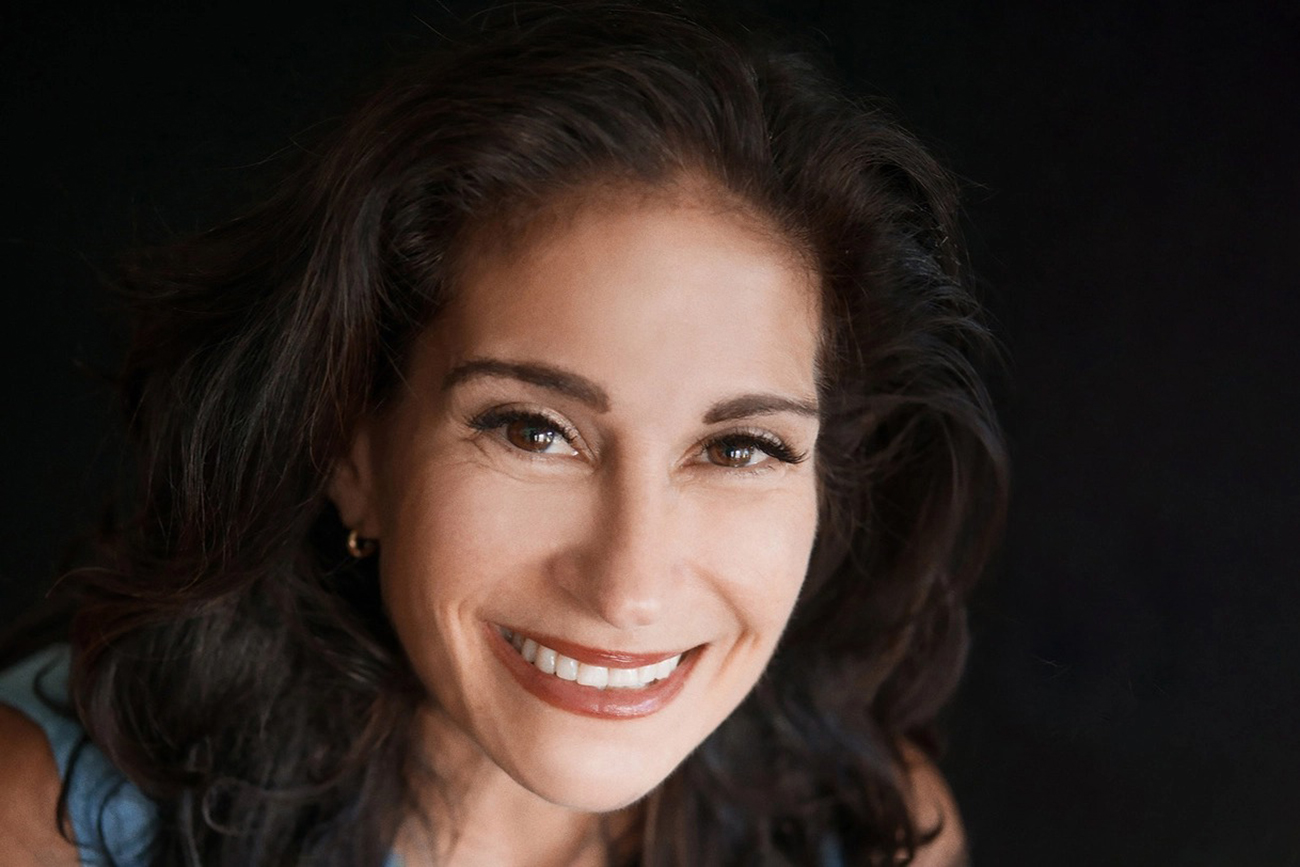
蘇珊·麥克弗森,McPherson Strategies創(chuàng)始人及首席執(zhí)行官
1990年,我和男友住在南加利福尼亞州。當時我25歲,在美通社(PRNewswire)工作,正處于職業(yè)高速發(fā)展階段。沒有來例假后,我做了幾次懷孕測試,結(jié)果都是陰性——在那個年代,這些測試都不太靠譜。我是懷孕12周后才知道的。
我的男朋友沒有工作,我們的家人也都不住在附近。我知道如果我們有了孩子,我就得請假。當時,美國公司幾乎不存在托兒服務和探親假。我們就沒有辦法生活了。
所以我去了奧蘭治縣的一家診所。我不得不越過50人的警戒線。我了解到,在20世紀60年代,我父親曾經(jīng)在一所女子學院任教,并幫助那些懷孕的學生,所以我告訴他發(fā)生了什么。他寄給我男朋友一張50美元的支票,讓他買很多本杰瑞(Ben & Jerry’s)的冰淇淋。
我從來沒有生過孩子,但我不后悔墮胎。那是在我母親死于一場可怕的悲劇之后僅僅兩年半,那對我來說是一段難以置信的艱難時期。我不可能在那個時候把一個孩子帶到這個世界上。
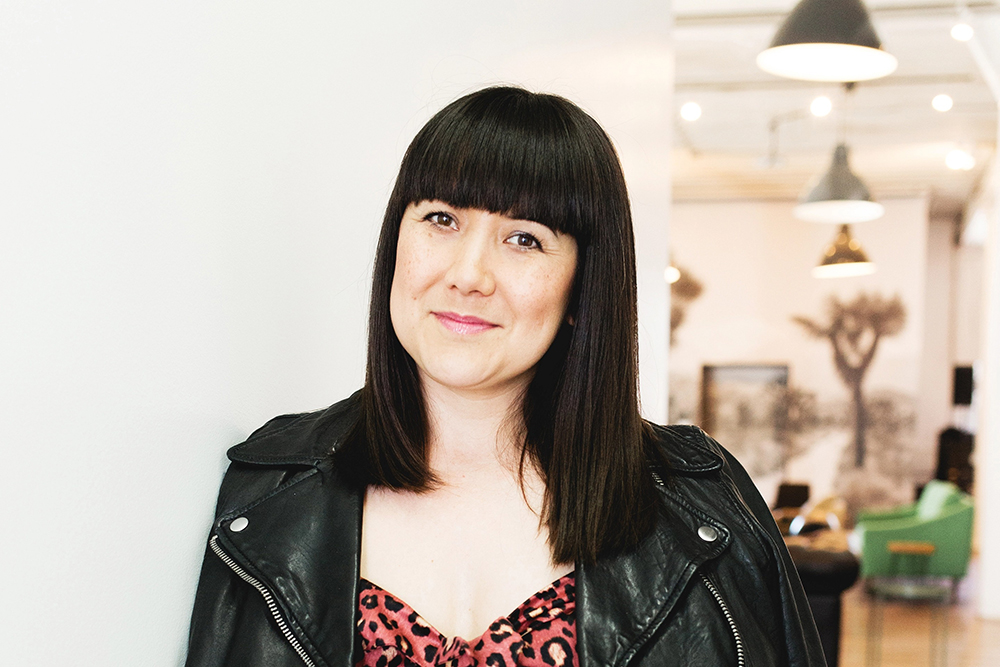
索尼婭·拉蘇拉, Unique Markets創(chuàng)始人
2008年秋天,我開始了自己的事業(yè)——這在金融危機期間并不是一個理想的時間。但我相信我自己和我們的社區(qū),即使在經(jīng)濟不景氣的情況下,支持小型獨立企業(yè)仍然很重要。生意開始興旺起來。兩個月后,我墮胎了。
我當時32歲,住在洛杉磯。我在情感上還沒有做好為人父母的準備,而我和我的伴侶正要分手。我還在服用治療嗜睡癥的處方藥,這對懷孕來說并不安全,因為這次懷孕是意外的,我已經(jīng)服用了好幾周的藥物。這讓我很擔心。
我在2008年做出墮胎的決定不是因為我要創(chuàng)業(yè)。但回過頭來看,這個選擇絕對影響了接下來發(fā)生的事情。我為我的公司付出了鮮血、汗水和淚水。頭三年,我每周7天,每天24小時連軸工作,就像我姐姐所說的她為人父母頭幾年的工作方式一樣。如果我沒有墮胎,我就不可能那樣拓展我的生意。我和小企業(yè)主們一起工作,我覺得他們是我的孩子,他們是我的家人。我投入時間和精力幫助他們成長。我覺得這就是我的人生目標。

阿普麗爾·雷金,Gauge媒體娛樂高級顧問
當我還年輕的時候——在20世紀80年代,我還不到21歲——我懷孕了。我知道我還沒有做好當母親的準備。我擔心黑人婦女的孕產(chǎn)婦死亡率:是白人婦女的三倍。我知道自己總有一天會想要孩子,而反對墮胎人士的宣傳讓我擔心在手術(shù)過程中可能會出現(xiàn)問題,我將無法生育孩子。
他們的宣傳并不是真的,我如今有兩個孩子,一個18歲,一個22歲。如果我在幾十年前就懷孕了,我就不可能以我想要的方式養(yǎng)活他們。當我為人父母時,我和多年前墮胎時的我完全不同。
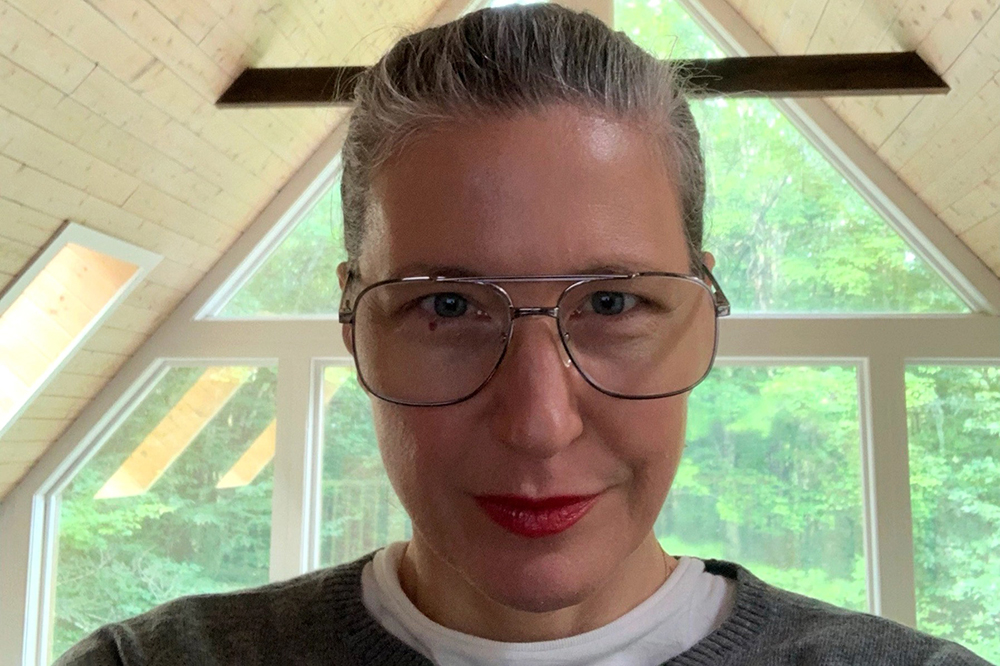
布里奇特·拉索,CMLBR首席營銷官
我墮過兩次胎。第一次墮胎時,我大約23歲——這是一個很容易做出的決定。那是我在紐約做的第一份公關(guān)工作,我還沒有準備好承擔這份責任。我對此感到有些羞愧,我沒有告訴很多人。我去了計劃生育中心。
第二次墮胎時,我當時35歲,和交往了五年的男朋友在一起。就在2007年我們分手的時候,我發(fā)現(xiàn)自己懷孕了。我以為我想要孩子,我認真考慮過繼續(xù)妊娠。我把這個決定告訴了我的家人和朋友。但我前男友的家人明確表示,他們不會參與孩子的生活,我認為這對孩子不利。所以我決定終止妊娠。過去幾天我一直在想:現(xiàn)在,孩子們出生時,他們的父母要么不想要孩子,要么沒有為他們的出生做好準備。
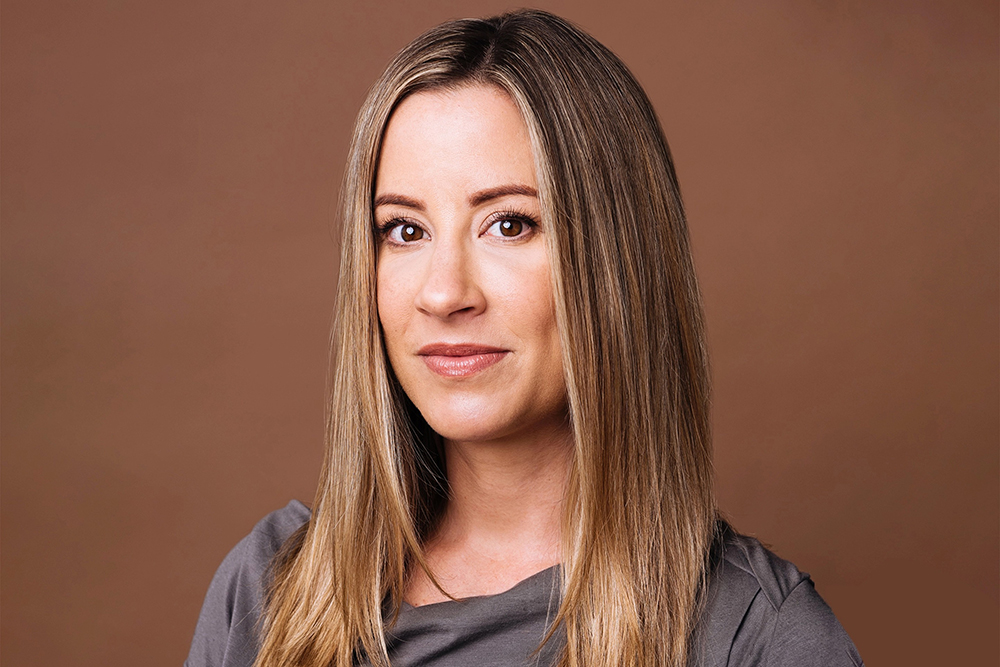
萊斯利·施羅克,天使投資人兼作家
我有兩個兒子,懷過五次孕:第一次是早期流產(chǎn),在五六周后自然流產(chǎn)。但接下來,我們不得不終止妊娠。在2018年的產(chǎn)前檢查中,我們發(fā)現(xiàn)胎兒患有18-三體綜合征(Trisomy 18),即愛德華氏癥(Edwards syndrome)。這是一種致命的染色體異常,在絕大多數(shù)情況下會導致流產(chǎn)或死產(chǎn)。對于少數(shù)患有愛德華氏癥的嬰兒來說,生活并不美好。大多數(shù)嬰兒會在幾天內(nèi)死亡。
我們的情況是孩子已經(jīng)沒有生命體征了。它已經(jīng)停止生長了。12周時的超聲波檢查告訴我們,妊娠不會繼續(xù)下去,會在幾周后自行結(jié)束。我們問婦產(chǎn)科醫(yī)師和遺傳顧問是否有任何希望,他們說:“絕對沒有。”我的婦產(chǎn)科醫(yī)師建議在我身體健康且沒有出現(xiàn)其他問題(比如敗血癥)的時候進行刮宮手術(shù)。
我和所有選擇墮胎的人一樣,都要經(jīng)受相同的詢問和程序。我記得有人問我:“有人強迫你這么做嗎?這就是你想要的嗎?”我記得我說:“絕對不是,這不是我想要的。我想要孩子。但我必須這么做。”當我不去想這件事情的時候,時間過得很慢。
一年后,我有了第一個兒子。在我的第一個孩子和第二個孩子之間,我又流產(chǎn)了,需要進行第二次刮宮手術(shù)。由于我生第二個兒子時出現(xiàn)并發(fā)癥,從醫(yī)學上講,我不應該再要孩子了。我可能會因為試圖再次懷孕而死亡。我在想,作為兩個孩子的母親,如果現(xiàn)在面臨這個決定,我會怎么做。我住在舊金山,墮胎仍然是合法的,但很多女性并不住在墮胎合法的州。限制墮胎的州的醫(yī)生不會接受這些手術(shù)的培訓,并且提供及時護理的能力已經(jīng)發(fā)生了變化,因為他們害怕被舉報。
我堅信女性有選擇的權(quán)利,但我希望每個人都知道:墮胎并不總是一種選擇。這也是一種必要的,有時甚至可以挽救生命的治療。(財富中文網(wǎng))
譯者:中慧言-王芳
美國最高法院(Supreme Court)推翻了“羅伊訴韋德案”(Roe v. Wade)的裁決,這激發(fā)了許多生育權(quán)的支持者公開分享她們的墮胎故事——通常是第一次——以努力消除公眾對墮胎經(jīng)歷的偏見。這次,一向比公眾更保守的企業(yè)卻遲遲沒有參與進來。
但高管也是人——有四分之一的美國女性在45歲之前墮過胎,一些高管就在其中。雖然每個人都有權(quán)將自己的墮胎故事保密,但選擇分享墮胎故事可能會帶來深遠影響。
《財富》雜志邀請各行各業(yè)和公司的商界領(lǐng)袖——從初創(chuàng)公司到處于巔峰的美國企業(yè)——分享她們的墮胎故事。14位商界領(lǐng)袖同意這樣做,以下故事是她們自己講述的。她們分享了幾十年前在開始職業(yè)生涯之前意外懷孕的故事,以及在發(fā)現(xiàn)孩子無法存活而被迫終止妊娠后強烈希望自己能夠保住孩子的故事。
在美國,企業(yè)在決定員工未來獲得生殖保健服務方面發(fā)揮著至關(guān)重要的作用。在禁止墮胎的州,雇主為員工提供墮胎手術(shù)和交通費用。在未來的幾個月和幾年里,公司將決定在哪里雇傭員工,以及把它們的州稅上繳給哪里。企業(yè)將被迫更仔細地審查它們?nèi)绾慰梢园l(fā)揮游說能力,以及哪些議員接受了它們的競選捐款。
然而,公開分享個人墮胎故事仍然是一種恥辱,尤其是作為商界領(lǐng)袖。值得注意的是,許多同意講述自己墮胎故事的人都是為自己工作的創(chuàng)始人和首席執(zhí)行官,而不是大型公司的高管。
正如這些故事所表明的那樣,首席執(zhí)行官和領(lǐng)導者在員工墮胎問題上的決策并不是在實施影響理論上的個體的抽象政策。這些決策會影響他們的員工,以及他們尊重并每天與之共事的領(lǐng)導。
安妮·波諾,企鵝蘭登書屋(Penguin Random House)增長營銷副總裁
2002年2月,我還在讀大三,當時快21歲了。我和某人約會,結(jié)果發(fā)現(xiàn)自己懷孕了。我的人生才剛剛開始。我有自己的計劃、希望和夢想,但從沒有考慮過讓自己在20歲時為人父母。
我和我的伴侶進行了一次理智而冷靜的討論,然后我去了康涅狄格州紐黑文的計劃生育中心(Planned Parenthood)。診所外面有抗議者,那場景很嚇人。但一進到診所,我就覺得自己得到了支持。我很容易就能夠獲得護理。
墮胎往往充滿了外在的恥辱和創(chuàng)傷。但我很榮幸,我的經(jīng)歷是積極的——我一點都不覺得羞恥。這很正常,我只是這樣做了。這是醫(yī)療保健。我今天有兩個孩子;一個是女孩,她將來不能按照自己意愿墮胎了。我們住在北卡羅來納州,如果她在20歲時懷孕,她就將面臨艱難的決定、恥辱和我從未面對過的困難。
麥迪遜·巴特勒,Grav公司首席人事官
我的墮胎經(jīng)歷救了我的命。在我20歲出頭的時候,我和一個有暴力傾向的人開始了一段感情。2014年,我發(fā)現(xiàn)自己懷孕了,當時我23歲,我們住在羅德島。我想終止妊娠,他也這么想。
我做了藥物流產(chǎn);我自己服藥——那是最痛苦的部分。我非常痛苦。當我在2015年再次懷孕時,我去了一家生殖健康診所,這樣我就不會再獨自承受那種痛苦了。在這段關(guān)系中,我在經(jīng)濟上受到了虐待;如果我無法在家附近墮胎,我就不可能離開這個州去接受我需要的護理。
我想,如果我沒有做過這兩次墮胎手術(shù),我的余生就將和一個虐待我的人綁在一起。更不用說在一個充滿暴力的家庭撫養(yǎng)一個孩子意味著什么。我從未感到一絲遺憾——我唯一感到的是,我知道自己保留了一些自由。和他生了孩子就意味著我再也不能重獲自由了。
布蘭登·卡森,《財富》500強里一家公司的副總裁
我出生于1965年,我媽媽在1963年生下了我的姐姐,當時她16歲。20世紀70年代,在新墨西哥州,身為單身母親,我媽媽撫養(yǎng)我們姐弟長大。當她在2009年去世時,我們讀了她的日記,發(fā)現(xiàn)她曾經(jīng)在20世紀60年代初懷過一次孕,并做過流產(chǎn),當時她只有十四五歲。我們沒有了解很多細節(jié),但這是在墮胎合法之前,而且他們沒有經(jīng)濟能力,所以我們認為她不會開車去一個更大的城市進行墮胎手術(shù)。
對她來說,16歲就成為母親,不斷換工作來養(yǎng)活我們已經(jīng)很艱難了——如果她在14歲時被迫成為母親,我就只能想象那會有多艱難。我們在一個保守的社區(qū)長大,但我媽媽總是對某些社會問題充滿熱情。這就是我媽媽教我的:這不是一個真正的政治決定。這是一項人權(quán)。
凱特·科爾,Athletic Greens總裁兼首席運營官
我有兩個漂亮的孩子,但我在懷這兩個寶寶之前和中間有過幾次流產(chǎn)。其中一次流產(chǎn)不是很順利。2018年年底,我去看了婦產(chǎn)科醫(yī)師,他們證實我流產(chǎn)了。我需要進行刮宮手術(shù),以確保沒有殘存物,這樣我就不會出現(xiàn)可能威脅健康或再次懷孕的并發(fā)癥。刮宮手術(shù)與手術(shù)流產(chǎn)非常相似。
我當時在亞特蘭大,擔任Focus Brands的總裁兼首席運營官,在那里,為期六周的墮胎禁令可能很快就會生效。現(xiàn)在我想,有多少醫(yī)療服務提供者會對進行墮胎手術(shù)感到緊張,或者擔心失去執(zhí)照和執(zhí)業(yè)能力,甚至坐牢。醫(yī)療服務提供者可能會說:“看,你需要進行手術(shù)。但我們這里不能再做手術(shù)了。”
凱西·加斯佩林,Amalgamated Bank社會影響銀行業(yè)務第一副總裁
我和現(xiàn)在的丈夫在一起已經(jīng)19年了——從我20歲開始。我們等了15年才組建了家庭,這樣我們才能在職業(yè)和經(jīng)濟上取得成功。2018年,我生下了我們的兒子。2020年,我自然流產(chǎn)了——當時我并不知道自己懷孕了。然后在2021年,我在計劃懷孕期間流產(chǎn)了兩次,都需要醫(yī)療支持。第二次是在12月。在美國最高法院聽取“多布斯訴杰克遜婦女健康組織案”(Dobbs v. Jackson Women's Health Organization)的口頭辯論,并表明其在墮胎權(quán)問題上的傾向的前一天,我發(fā)現(xiàn)懷孕是不可行的。
馬薩諸塞州的醫(yī)生讓我選擇使用藥物流產(chǎn)、進行外科手術(shù)或順其自然。在我第一次流產(chǎn)后,我知道第三種選擇會是什么樣子;我希望在安全可控的環(huán)境中(在我家中)進行藥物流產(chǎn)。這一選擇給了我隱私和尊嚴。這一選擇承認了我的人性——懷著孩子的婦女的人性。我無法想象如果不能控制這個決定會有多痛苦。
維多利亞·塞恩·吉奧亞,Perelel聯(lián)合創(chuàng)始人及聯(lián)合首席執(zhí)行官
29歲時,我剛剛結(jié)婚。我和丈夫都想要一個大家庭。2016年,我第一次懷孕,當時我們住在洛杉磯,我流產(chǎn)了。孩子在九周時失去了心跳。我嘗試過藥物流產(chǎn),但沒有成功。我必須盡快進行刮宮手術(shù)。由于潛在的疤痕組織,我有感染甚至死亡的風險,以及威脅未來生育能力的風險。我拼命想要一個孩子,所以這對我來說很可怕。手術(shù)在24小時內(nèi)完成對我的健康至關(guān)重要。
嚴格來說,這不是我的選擇。但能夠進行嚴格意義上的墮胎手術(shù)——快速而安全地進行墮胎手術(shù)——讓我今天有了三個健康的孩子。
琳達·金,Moon Mental Health創(chuàng)始人及首席執(zhí)行官
2001年,21歲的我剛從大學畢業(yè),準備進入醫(yī)學院。我是一個陷入戀愛的年輕人,我的人生還有很長的路要走,我根本沒有做好為人父母的準備。我去了波士頓的計劃生育中心。這是艱難的。這本身已經(jīng)是一個令人心碎和痛苦的決定。然后你去診所,就會看到抗議者們大喊大叫,試圖嚇跑你。
六年后,我在2007年生下了三個女兒中的第一個,當時我在麻省總醫(yī)院(Mass General)做精神病住院醫(yī)師。那是懷孕最糟糕的時候——我在懷孕38周和39周的時候上了兩周夜班。但這對我來說是正確的選擇。人們有時會談論導致女性終止妊娠的“種種不便”。這不是方不方便的問題——每個人都會知道他們何時做好了情緒準備,這對他們來說是正確的選擇。當一個人準備好了,他們就能夠消除障礙去做最困難的事情。當他們沒有準備好時,懷孕會造成巨大的傷害。
蘇珊·勒納,Michael Stars創(chuàng)始人及首席執(zhí)行官
我在20世紀50年代和60年代長大,那時沒有人談論性、經(jīng)期,甚至母乳喂養(yǎng)或其他任何事情。要服用避孕藥,我需要得到父母的許可。當我離開家去威斯康辛大學(University of Wisconsin)讀書時,我終于在計劃生育中心服了避孕藥。大學輟學后,我環(huán)游世界,最終在印度開始做進口生意。當我往返印度,創(chuàng)辦新公司的時候,我遇到了一個法國男人,和他有過一段短暫的戀情,然后懷孕了。
我是1978年回到洛杉磯的時候發(fā)現(xiàn)的,那時我27歲。當時“羅伊訴韋德案”的判決才過去五年,但我不知道有誰經(jīng)歷過這件事情。沒有人談論這件事情。但我知道我可以合法墮胎。我很幸運,我的婦科醫(yī)生愿意為我做墮胎手術(shù)。
如果我未能墮胎,我的麻煩就大了。我不知道我會做什么。我沒有積蓄。我的父母可能會收留我,但當時他們在芝加哥,而且年紀很大了。我一生中所做的一切——1986年我和丈夫創(chuàng)辦了Michael Stars,如今我們雇傭了110名員工——都不會發(fā)生。我很幸運能夠自由地做出這個決定,并且無怨無悔地繼續(xù)前行。
蘇內(nèi)拉·馬徳哈尼, Stax創(chuàng)始人及首席執(zhí)行官
我就是這樣一個公眾人物。我?guī)缀醴窒砦疑钪械囊磺小_@是我從未分享過的。這是我唯一的秘密。
那是2005年。當時我20歲,在佛羅里達州蓋恩斯維爾上大學。計劃生育中心是我知道能夠進行墮胎的唯一地點。我和男朋友一起去了計劃生育中心,他現(xiàn)在是我的丈夫。他和我最好的朋友是我生命中唯一知道這件事情的人。我沒有告訴我的父母或我最親密的朋友。
我擔心的是我無法做所有我想做的事情。我只是還沒有準備好。后來我完成了大學學業(yè)——我是一個有抱負的人。如果我沒有做出那樣的選擇,我的人生將會走上完全不同的道路。并不是說那樣做就會走上不歸路,而是會有所不同。
我25歲時在奧蘭多創(chuàng)辦了Stax。我現(xiàn)在有300名員工,我們是一家獨角獸公司。如果我沒有做出那樣的選擇,這一切都不可能發(fā)生。如果我還沒有準備好就被迫成為母親,這一切都不會發(fā)生。我必須為自己做出那樣的選擇。在我30歲的時候,我們有了第一個女兒——那時我已經(jīng)準備好了。
美國最高法院的判決激發(fā)我第一次分享這個故事。我告訴了我媽媽,她問:“你為什么不告訴我?”但我也想讓我私生活之外的其他人知道這件事情。作為一名金融科技公司的首席執(zhí)行官,我受到佛羅里達州的領(lǐng)導人和政界人士的尊重,該州的議員們已經(jīng)提出了一項墮胎禁令。重要的是要讓他們明白,如果我被他們?yōu)槲易龀龅倪x擇所奴役,這一切都是不可能的。
蘇珊·麥克弗森,McPherson Strategies創(chuàng)始人及首席執(zhí)行官
1990年,我和男友住在南加利福尼亞州。當時我25歲,在美通社(PRNewswire)工作,正處于職業(yè)高速發(fā)展階段。沒有來例假后,我做了幾次懷孕測試,結(jié)果都是陰性——在那個年代,這些測試都不太靠譜。我是懷孕12周后才知道的。
我的男朋友沒有工作,我們的家人也都不住在附近。我知道如果我們有了孩子,我就得請假。當時,美國公司幾乎不存在托兒服務和探親假。我們就沒有辦法生活了。
所以我去了奧蘭治縣的一家診所。我不得不越過50人的警戒線。我了解到,在20世紀60年代,我父親曾經(jīng)在一所女子學院任教,并幫助那些懷孕的學生,所以我告訴他發(fā)生了什么。他寄給我男朋友一張50美元的支票,讓他買很多本杰瑞(Ben & Jerry’s)的冰淇淋。
我從來沒有生過孩子,但我不后悔墮胎。那是在我母親死于一場可怕的悲劇之后僅僅兩年半,那對我來說是一段難以置信的艱難時期。我不可能在那個時候把一個孩子帶到這個世界上。
索尼婭·拉蘇拉, Unique Markets創(chuàng)始人
2008年秋天,我開始了自己的事業(yè)——這在金融危機期間并不是一個理想的時間。但我相信我自己和我們的社區(qū),即使在經(jīng)濟不景氣的情況下,支持小型獨立企業(yè)仍然很重要。生意開始興旺起來。兩個月后,我墮胎了。
我當時32歲,住在洛杉磯。我在情感上還沒有做好為人父母的準備,而我和我的伴侶正要分手。我還在服用治療嗜睡癥的處方藥,這對懷孕來說并不安全,因為這次懷孕是意外的,我已經(jīng)服用了好幾周的藥物。這讓我很擔心。
我在2008年做出墮胎的決定不是因為我要創(chuàng)業(yè)。但回過頭來看,這個選擇絕對影響了接下來發(fā)生的事情。我為我的公司付出了鮮血、汗水和淚水。頭三年,我每周7天,每天24小時連軸工作,就像我姐姐所說的她為人父母頭幾年的工作方式一樣。如果我沒有墮胎,我就不可能那樣拓展我的生意。我和小企業(yè)主們一起工作,我覺得他們是我的孩子,他們是我的家人。我投入時間和精力幫助他們成長。我覺得這就是我的人生目標。
阿普麗爾·雷金,Gauge媒體娛樂高級顧問
當我還年輕的時候——在20世紀80年代,我還不到21歲——我懷孕了。我知道我還沒有做好當母親的準備。我擔心黑人婦女的孕產(chǎn)婦死亡率:是白人婦女的三倍。我知道自己總有一天會想要孩子,而反對墮胎人士的宣傳讓我擔心在手術(shù)過程中可能會出現(xiàn)問題,我將無法生育孩子。
他們的宣傳并不是真的,我如今有兩個孩子,一個18歲,一個22歲。如果我在幾十年前就懷孕了,我就不可能以我想要的方式養(yǎng)活他們。當我為人父母時,我和多年前墮胎時的我完全不同。
布里奇特·拉索,CMLBR首席營銷官
我墮過兩次胎。第一次墮胎時,我大約23歲——這是一個很容易做出的決定。那是我在紐約做的第一份公關(guān)工作,我還沒有準備好承擔這份責任。我對此感到有些羞愧,我沒有告訴很多人。我去了計劃生育中心。
第二次墮胎時,我當時35歲,和交往了五年的男朋友在一起。就在2007年我們分手的時候,我發(fā)現(xiàn)自己懷孕了。我以為我想要孩子,我認真考慮過繼續(xù)妊娠。我把這個決定告訴了我的家人和朋友。但我前男友的家人明確表示,他們不會參與孩子的生活,我認為這對孩子不利。所以我決定終止妊娠。過去幾天我一直在想:現(xiàn)在,孩子們出生時,他們的父母要么不想要孩子,要么沒有為他們的出生做好準備。
萊斯利·施羅克,天使投資人兼作家
我有兩個兒子,懷過五次孕:第一次是早期流產(chǎn),在五六周后自然流產(chǎn)。但接下來,我們不得不終止妊娠。在2018年的產(chǎn)前檢查中,我們發(fā)現(xiàn)胎兒患有18-三體綜合征(Trisomy 18),即愛德華氏癥(Edwards syndrome)。這是一種致命的染色體異常,在絕大多數(shù)情況下會導致流產(chǎn)或死產(chǎn)。對于少數(shù)患有愛德華氏癥的嬰兒來說,生活并不美好。大多數(shù)嬰兒會在幾天內(nèi)死亡。
我們的情況是孩子已經(jīng)沒有生命體征了。它已經(jīng)停止生長了。12周時的超聲波檢查告訴我們,妊娠不會繼續(xù)下去,會在幾周后自行結(jié)束。我們問婦產(chǎn)科醫(yī)師和遺傳顧問是否有任何希望,他們說:“絕對沒有。”我的婦產(chǎn)科醫(yī)師建議在我身體健康且沒有出現(xiàn)其他問題(比如敗血癥)的時候進行刮宮手術(shù)。
我和所有選擇墮胎的人一樣,都要經(jīng)受相同的詢問和程序。我記得有人問我:“有人強迫你這么做嗎?這就是你想要的嗎?”我記得我說:“絕對不是,這不是我想要的。我想要孩子。但我必須這么做。”當我不去想這件事情的時候,時間過得很慢。
一年后,我有了第一個兒子。在我的第一個孩子和第二個孩子之間,我又流產(chǎn)了,需要進行第二次刮宮手術(shù)。由于我生第二個兒子時出現(xiàn)并發(fā)癥,從醫(yī)學上講,我不應該再要孩子了。我可能會因為試圖再次懷孕而死亡。我在想,作為兩個孩子的母親,如果現(xiàn)在面臨這個決定,我會怎么做。我住在舊金山,墮胎仍然是合法的,但很多女性并不住在墮胎合法的州。限制墮胎的州的醫(yī)生不會接受這些手術(shù)的培訓,并且提供及時護理的能力已經(jīng)發(fā)生了變化,因為他們害怕被舉報。
我堅信女性有選擇的權(quán)利,但我希望每個人都知道:墮胎并不總是一種選擇。這也是一種必要的,有時甚至可以挽救生命的治療。(財富中文網(wǎng))
譯者:中慧言-王芳
The Supreme Court’s reversal of Roe v. Wade has inspired many supporters of reproductive rights to share their abortion stories publicly—often for the first time—in an effort to destigmatize the experience. Business, always more conservative than the general public, has been slow to take part.
But executives are people too—and some are among the one in four American women who have an abortion before they turn 45. And while it’s certainly every person’s right to keep their abortion story private, choosing to share can be incredibly powerful.
Fortune asked business leaders across industries and companies—from early-stage startups to the heights of corporate America—to share their abortion experiences. Fourteen agreed to do so, and their stories are below in their own words. They shared stories of both unplanned pregnancies decades ago, before they began their careers, and deeply wanted pregnancies they were forced to terminate after finding out the child would not survive.
Businesses are playing a critical role in deciding the future of access to reproductive health care in the U.S. Employers are funding abortion procedures and travel costs for workers in states where abortion is now banned. In the months and years ahead, companies will make decisions about where to hire and where to send their state tax dollars. And businesses will be forced to more closely examine how they exert their lobbying power and which lawmakers receive their campaign donations.
Yet there is still stigma attached to publicly sharing a personal experience with abortion, particularly as a business leader. It's notable that many of the people who agreed to speak for this story are founders and CEOs who work for themselves, rather than executives within large organizations.
As these stories demonstrate, the CEOs and leaders making decisions about employee access to abortion are not implementing abstract policies affecting theoretical individuals. These are decisions that affect real members of their workforces, and leaders they respect and work alongside every day.
Anne Bono, VP, growth marketing, Penguin Random House
In February 2002, I was a junior in college and almost 21 years old. I was dating someone, and we found out I was pregnant. I was just starting out my life. I had plans, hopes, and dreams, and none of them involved me being a parent at age 20.
I had a logical, calm discussion with my partner, and I went to the Planned Parenthood in New Haven, Conn. There were protesters outside the clinic, and that was intimidating. But once I was inside the clinic, I felt supported. I was easily able to access care.
Abortion is so often imbued with external shame and trauma. But I was privileged and my experience was positive–it didn’t feel shameful at all. It was normal, and I just did it. It was health care. I have two children today; one is a girl, and she won’t be afforded that. We live in North Carolina, and if she gets pregnant when she’s 20, she’s going to be faced with tough decisions, stigma, and hardship that I never had to face.
Madison Butler, chief people officer, Grav
My abortions saved my life. In my early 20s, I got into a relationship with someone who became violent and abusive. I found out I was pregnant in 2014, when I was 23, while we were living in Rhode Island. I wanted to end the pregnancy, and so did he.
I had a medical abortion; I took the medication by myself—that was the traumatic part. I was in so much pain. When I got pregnant again in 2015, I went to a reproductive health clinic so I wouldn’t be in that kind of pain alone again. My relationship was financially abusive; I would not have been able to leave the state to get the care I needed if I couldn’t access abortion near my home.
I think about the implications if I hadn’t had either of those abortions: being tied to someone who abused me for the rest of my life. Not to mention what it means to raise a child in a household that is violent. I never felt an ounce of regret—the only thing I felt is the knowledge that I retained some of my freedom. Having a child with him would have meant I never got that freedom back.
Brandon Carson, VP, learning, Fortune 500 company
I was born in 1965, and my mom had my older sister in 1963 when she was 16. We grew up with her as a single mom in New Mexico in the 1970s. When she died in 2009, we read her diaries and found out she had been pregnant once before in the early 1960s and had an abortion, when she was only 14 or 15 years old. We didn’t learn many details, but the procedure was before abortion was legal and they weren’t of economic means, so we don’t think she would have driven to a larger city.
It was already hard for her to become a mom at 16, going from job to job to take care of us—if she had been forced to become one at 14, I can only imagine how difficult it would have been. We grew up in a conservative community, but my mom was always passionate about certain social issues. And this is what my mom taught me: It's not really a political decision. It's a human right.
Kat Cole, president and COO, Athletic Greens
I have two beautiful babies, but I had several miscarriages before and in between those pregnancies. One of them was not smooth sailing. I went in to my ob/gyn in late 2018, and they confirmed that I had had a miscarriage. I needed a D&C to make sure the remaining tissue was gone so I wouldn’t end up with complications that would threaten my health or my ability to get pregnant again. The procedure is very similar to surgical abortion.
I was in Atlanta, where I was working as president and COO of Focus Brands and where a six-week abortion ban is likely to soon go into effect. Now I’m thinking about the number of providers who will be nervous to perform those procedures or worry about losing their license and their ability to practice, or even jail time. Providers who might say, “Look, you need this. But we don’t do that here anymore.”
Kathy Gasperine, first VP, social impact banking, Amalgamated Bank
I’ve been with my now husband for 19 years—since I was 20. We waited 15 years to start our family so we could establish ourselves professionally and financially. In 2018, I gave birth to our son. In 2020, I had a miscarriage that resolved naturally—I didn’t know I was pregnant at the time. Then in 2021, I had two miscarriages during planned pregnancies that both required medical support. The second was in December. I found out the pregnancy wasn't viable the day before the Supreme Court heard oral arguments in Dobbs v. Jackson Women’s Health Organization and indicated where it was headed on the issue of abortion rights.
My doctor in Massachusetts gave me the option of using medication abortion, having a surgical procedure, or letting nature take its course. After my first miscarriage, I knew what that third option would be like; I wanted the safe and controlled environment to pass the tissue in the privacy of my own home with medication abortion. It gave me the privacy and dignity to manage my miscarriages. It acknowledged my humanity—the humanity of the person carrying the baby. I can’t imagine how painful it would be not to control that decision.
Victoria Thain Gioia, cofounder and co-CEO, Perelel
At 29, I had just gotten married. My husband and I knew we wanted a large family. During our first pregnancy in 2016 while we were living in Los Angeles, I had a miscarriage. We lost the heartbeat at nine weeks along. I tried medication abortion to pass the pregnancy, but it didn’t work. I had to have a D&C quickly. I had a risk of infection, or even death, and risks to my future fertility because of potential scar tissue. I was desperately trying to have a baby, so that was scary to me. The speed with which the procedure happened within 24 hours was so important to my health.
This wasn’t technically my choice. But having access to what is technically abortion—quick access and safe access—allowed me to have three healthy children today.
Linda Kim, founder and CEO, Moon Mental Health
In 2001, I had just graduated college at 21 and was getting ready to enter medical school. I was a young person in love, with my whole life ahead of me, and I fundamentally was not ready to be a parent. I went to a Planned Parenthood in Boston. It was difficult. It’s a heartbreaking and painful decision already. And then going to a clinic, having protesters shout and try to scare you off.
Six years later, I had the first of my three daughters in 2007 while I was a psychiatry resident at Mass General. It was the worst possible time to be pregnant—I was on night float for two weeks at 38 and 39 weeks pregnant. And yet it was right for me. People sometimes talk about “inconvenience” leading women to end pregnancies. It’s no matter of inconvenience—each person will know when they’re emotionally ready and it’s right for them. When someone is ready, they’re able to move mountains to do the hardest things possible. When they’re not ready, it can cause such tremendous harm.
Suzanne Lerner, founder and CEO, Michael Stars
I grew up in the 1950s and 1960s, when no one talked about sex, periods, even breastfeeding, or anything. To get on the pill, I needed my parents’ permission. When I left home to attend the University of Wisconsin, I finally got on the pill at a Planned Parenthood. After dropping out of college, I traveled the world and eventually started an import business in India. While I was traveling back and forth to India, getting my new company started, I met a French man, had a brief affair with him, and got pregnant.
I found out when I was back in Los Angeles in 1978, when I was 27. It was only five years after Roe v. Wade was decided, but I didn’t know anybody who had been through this. No one talked about it. But I knew I could have a legal abortion. I was lucky that my gynecologist was willing to do it.
If I hadn’t been able to have an abortion, I would’ve been in real trouble. I don’t know what I would have done. I had no money saved. My parents might have taken me in, but they were in Chicago and were older by then. Everything I’ve done in my life—I started Michael Stars in 1986 with my husband, and we employ 110 people today—would not have happened. I was very lucky to have the freedom to make that decision and to move forward with no regrets.
Suneera Madhani, founder and CEO, Stax
I’m such a public person. I share almost everything about my life. And this is something I never shared. This is the only secret I’ve carried.
It was 2005. I was 20, in college in Gainesville, Fla. Planned Parenthood was the only resource I knew of. That’s where I went with my boyfriend, who is now my husband. He and my best friend were the only people in my life who knew. I didn’t tell my parents or my closest friends.
My fear was that I wouldn’t get to do all the things I wanted to do. I just wasn’t ready. I went on to complete college—I was super ambitious. If I hadn’t made those choices, my life would have taken a completely different path. It’s not that it would have been a bad path, but it would have been different.
I started Stax in Orlando when I was 25. I have 300 employees today and we’re a unicorn company. There is zero chance any of this would have been possible if I didn’t make those choices. None of this would be here if I was forced to enter motherhood when I wasn’t ready. I got to make that choice for me. We had our first daughter when I was 30—when I was ready.
The Supreme Court decision inspired me to share this for the first time. I told my mom, and she asked, “Why didn’t you tell me?” But I want other people outside my personal life to know too. I’m respected as a fintech CEO by leaders and politicians in Florida, where lawmakers have advanced an abortion ban. It’s important for them to see that all this would not be possible if I were enslaved by choices they made for me.
Susan McPherson, founder and CEO, McPherson Strategies
In 1990, I was living with my boyfriend in southern California. I was 25, working for PRNewswire on a super fast growth trajectory. After missing my period, I had taken several pregnancy tests, and they were all negative—they weren’t very reliable in those days. I didn’t find out until 12 weeks into the pregnancy.
My boyfriend didn’t have a job, and neither of our families lived close by. I knew if we had a baby I would have to take time off work. Childcare support and family leave in corporate America were almost nonexistent at the time. We wouldn’t have had the means to live.
So I went to a clinic in Orange County. I had to cross a picket line of 50 people. I learned that in the 1960s, my dad had taught at a women’s college and actually helped students who found themselves pregnant, so I told him what was going on. He mailed my boyfriend a check for $50 to buy a lot of Ben & Jerry’s.
I never ended up having children, but I don’t regret having an abortion. It was only about two and a half years after my mother was killed in a horrible tragedy, and it was an incredibly difficult time for me. There’s no way I could have brought a child into the world at that time.
Sonja Rasula, founder, Unique Markets
In the fall of 2008, I started my business—not an ideal time during the financial crash. But I had a belief in myself and in our community that supporting small, independent businesses would continue to be important even amid a terrible economy. The business started to take off. Two months later, I had an abortion.
I was 32 and living in Los Angeles. I was not emotionally ready to be a parent, and my partner and I were at the end of our relationship. I also was taking prescription drugs for narcolepsy that are not safe for a pregnancy, and because the pregnancy was unplanned I had taken them for several weeks. That worried me.
I didn’t make the decision to have an abortion in 2008 because I was starting my business. But looking back, the choice absolutely influenced what came next. I gave my blood, sweat, and tears to my company. I worked 24/7 for the first three years—similar to how my sister would say she worked in her first years as a parent. I couldn’t have grown my business the way I did had I not had the abortion. I work with small business owners, and I feel like they are my children and they’re my family. I put my time and energy into helping them grow. I feel like that’s what my purpose was supposed to be.
April Reign, senior advisor for media and entertainment, Gauge
When I was young—under 21 years old, in the 1980s—I became pregnant. I knew I was not ready to be a mother. I worried about the maternal mortality rate for Black women: three times that of white women. I knew I wanted to have children at some point, and the propaganda put out by antichoice people made me concerned that something could go wrong during the procedure and I would not be able to have biological children.
That was not true, and I have an 18-year-old and a 22-year-old today. I would not have been able to provide for them in the way I wanted to had I kept the pregnancy decades ago. I was a completely different person when I became a parent than I was when I had the abortion all those years ago.
Bridget Russo, CMO, CLMBR
I’ve had two abortions. The first, I was about 23—it was an easy decision. I was working my first PR job in New York, and I was not ready for that responsibility. I felt some shame around it, and I didn’t tell a lot of people. I went to Planned Parenthood.
The second, I was 35 and with my boyfriend of five years. Right as we were breaking up in 2007, I found out I was pregnant. I thought I wanted to have children, and I strongly considered moving forward with the pregnancy. I talked to my family and friends about the decision. But my ex-boyfriend’s family made clear that they wouldn’t be involved in the child’s life, which I thought wouldn’t be good for the kid. So I decided to terminate the pregnancy. That’s been on my mind these past days: Children will now be born into situations where their parents either did not want children or were not prepared for them.
Leslie Schrock, angel investor and author
I have two sons, and I’ve had five pregnancies: the first an early miscarriage that resolved naturally at five or six weeks. But with the next, we had to end the pregnancy. During prenatal testing in 2018, we found out the fetus had Trisomy 18, or Edwards syndrome. It’s a fatal chromosomal abnormality that results in miscarriage or stillbirth the vast majority of the time. There is no good life for the few babies that are born with it. Most die within days.
In our case, there was no life. It had stopped growing. The ultrasound at 12 weeks told us that this was not a pregnancy that was going to progress and was weeks away from ending on its own. We asked our OB and our genetic counselor if there was any hope, and they said, “Absolutely not.” My OB advised us to get a D&C while I was healthy and nothing else had gone wrong, like developing sepsis.
I had to go through all the same questions and protocols as for anyone choosing to have an abortion. I remember being asked, “Is anyone forcing you to do this? Is this what you want?” I remember saying, “Absolutely not, this isn’t what I want. I wanted a baby. But I have to do this.” Not much time goes by when I don’t think about it.
A year later, I had my first son. In between my first and second, I had another miscarriage and needed a second D&C. Because of complications during the birth of my second son, medically, I’m not supposed to have any more children. I could die trying to carry another pregnancy. I think about what I would do if faced with that decision now as a mother of two young children. I live in San Francisco, in a state where abortion is still legal, but so many women don’t. Doctors in states that restrict abortion won’t be trained in these procedures, and the ability to deliver timely care is already changing because they’re scared of being reported.
I am a strong believer in women’s right to choose, but I want everyone to know: Abortion is not always a choice. It is also a necessary, sometimes lifesaving medical treatment.






